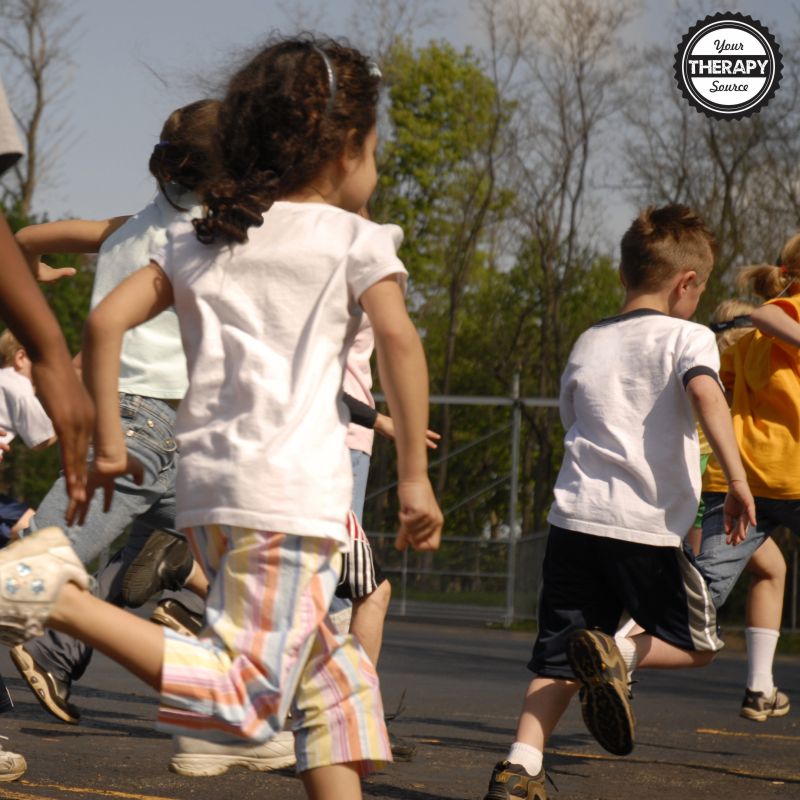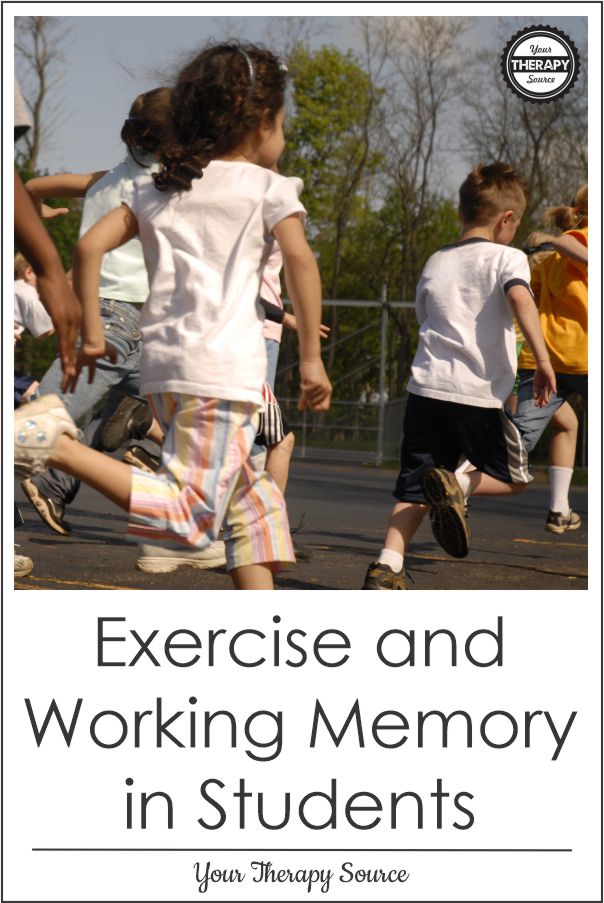Exercise and Working Memory in School Children
What to help your students with working memory? Researchers have explored the association between exercise and working memory and have found that aerobic fitness, muscle strength, and coordination are all associated with working memory.
Working memory is an important skills for students for reading, writing, math, following directions, and more. This executive function skills is the capacity to hold information in mind for the purpose of completing a task.
What Does the Research Say on Exercise and Working Memory in Students?
Pediatric Exercise Science published research examining the role of exercise on the cognitive development in children including working memory (WM) and inattentiveness in a large sample of 2897 schoolchildren (7-10 years old). Data was collected using the n-back task (2- and 3-back), the attentional network task (ANT) and parent questionnaire with information about the extracurricular exercise of their child and commuting to school.
The results indicated that:
- exercising twice per week or more was associated with higher working memory scores and lower inattentiveness scores at baseline when compared with exercising only once per week or less.
- active commuting for more than 50 min was associated with better 3-back scores at baseline, as compared with passive commuting.
- no consistent associations were found between physical activity and cognitive growth.
The researchers concluded that children with high levels of physical activity performed better in cognitive tasks.
Reference: López-Vicente, M. et. al. (2016). Physical Activity and Cognitive Trajectories in Schoolchildren. Pediatric exercise science, 28(3), 431-438.
Research on Muscle Strength and Working Memory
Exercise and working memory is not only associated with aerobic fitness. Other researchers determined that there is a differential relationships between aerobic and muscular aspects of physical fitness with working memory and academic achievement. The research study suggested the importance of muscular fitness as well to cognitive health during preadolescence.
Reference: Kao, S. C., Westfall, D. R., Parks, A. C., Pontifex, M. B., & Hillman, C. H. (2017). Muscular and aerobic fitness, working memory, and academic achievement in children. Med Sci Sports Exerc, 49(3), 500-508.
The Core Strengthening Exercise Program digital download includes exercises to help make core strengthening fun and entertaining for kids while promoting carryover in the classroom and at home!
Coordination Skills and Working Memory
Other researchers took a closer look at what types of exercise are associated with working memory and other executive function skills. Their research explored exercise and executive function skills in young tennis players.
The results indicated that:
- a longer duration of game-based exercise was positively correlated with inhibitory control and physical fitness.
- coordination training was associated with improved working memory.
- short non-physical activity breaks were inversely correlated with inhibitory control, working memory, and physical fitness.
The researchers concluded that game based exercises had beneficial effects on inhibitory control and physical fitness levels, and a longer duration of coordination training was associated with better working memory.
Reference: Ishihara, T., Sugasawa, S., Matsuda, Y., & Mizuno, M. (2017). Improved executive functions in 6–12-year-old children following cognitively engaging tennis lessons. Journal of sports sciences, 35(20), 2014-2020.
25+ Bilateral Coordination Exercises is a collection of bilateral coordination exercise sheets including QR codes with links to video demonstration of exercises. None of the exercises require any equipment! These activities encourage: bilateral coordination, motor timing, motor planning, muscle strengthening and balance skills. #1 Best Seller in Sensory Motor Category!






